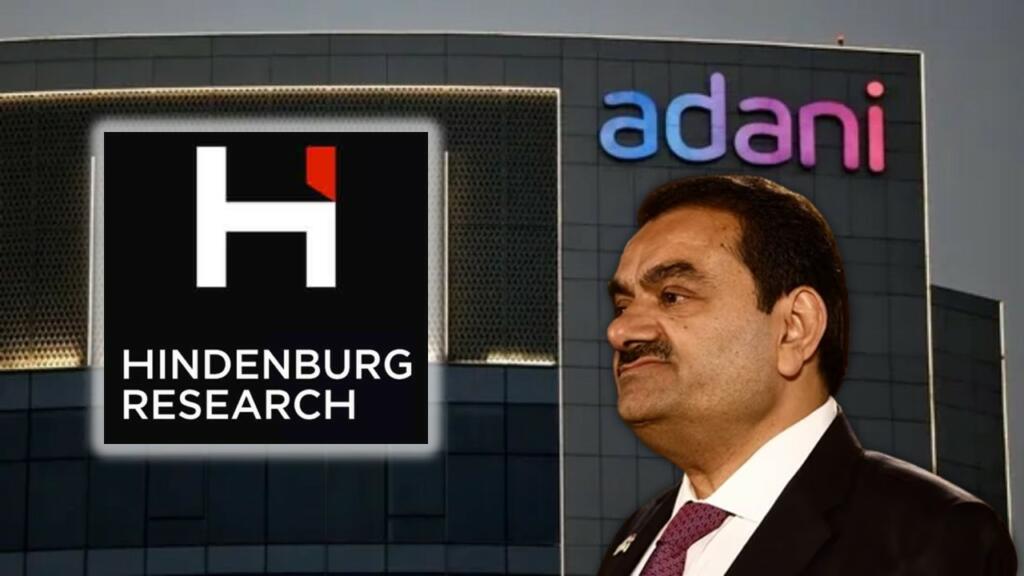In an explosive revelation, the Enforcement Directorate (ED) has brought to light a major financial maneuver that has left the stock market buzzing with controversy. The ED has informed the Securities and Exchange Board of India (SEBI) about a startling discovery involving 12 companies, both national and international, who seemingly profited from the ‘Short Selling’ of Adani Group Shares. The timing of these transactions, occurring just 2-3 days prior to the public release of the Hindenburg Research report on Adani Group, raises serious questions about the involved entities’ foreknowledge.
Preliminary findings from the ED’s investigation indicate that a dozen Foreign Institutional Investors (FIIs) and Foreign Portfolio Investors (FPIs) engaged in the sale of Adani Group shares mere days before the Hindenburg Research report hit the newsstands. What’s more intriguing is the inference that all 12 of these companies possessed advance knowledge about the impending Hindenburg Report on the Adani Group’s financial standing. This knowledge also extended to the anticipation of a minor Stock Market Crash in India, which ultimately transpired. In light of this, the entities engaged in the strategic move of Short Selling their own stocks prior to the anticipated market downturn, a move that suggests an orchestrated plan.
This series of events points to the Hindenburg Report potentially being a meticulously timed ‘Stock Market HEIST’, where certain players were privy to non-public information that they exploited for financial gain. Among the 12 companies in question, three are based in India, one of which represents an Indian branch of a foreign bank. Four entities are situated in Mauritius, while one each can be traced to France, Hong Kong, the Cayman Islands, Ireland, and London.
Remarkably, one of the companies based in the Cayman Islands has already faced significant legal consequences in the USA, having been fined a staggering $1.80 Billion for engaging in Insider Trading. This prior history casts an even darker shadow over their involvement in the recent transactions surrounding the Adani Group shares.
Interestingly, two of the ‘top short sellers’ of Adani Group shares are domestic Indian companies, one registered in Mumbai and the other in New Delhi. These Indian entities’ participation adds a layer of complexity to the narrative, indicating that the intrigue spans both national and international borders.
Also read: Adani-Hindenburg row: Decoding the hidden agendas
Another alarming discovery made by the Enforcement Directorate pertains to the lack of disclosure regarding the ownership structure of these 12 companies to the Indian income tax authorities. This lack of transparency is particularly striking in some instances. For example, one of the companies was established as recently as July 2020 and remained dormant until September 2021. However, within a mere six-month period from September 2021 to March 2022, this company claimed an income of Rs 1,100 crore on a turnover of Rs 31,000 crore. Such rapid and massive financial gains warrant a thorough investigation into the legitimacy of these transactions.
Similarly, another global financial services group, operating as a bank within India, reported earnings of just Rs 122 crore. However, as an FII, they astonishingly declared a colossal income of Rs 9,700 crore, all while evading income tax. These findings not only raise questions about tax evasion but also bring attention to potential regulatory oversights that allowed such financial maneuvers to go unchecked.
As the dust settles on these revelations, regulators, investors, and the general public are left grappling with the magnitude of the situation. The ED’s preliminary investigation paints a picture of market manipulation, potential insider trading, and financial opacity that demand swift and thorough action. With a web of international and domestic players involved, the ramifications of this revelation could extend far beyond the immediate controversy.
The Hindenburg conspirators may soon feel the heat of accountability as the investigative spotlight intensifies. Whether this ultimately serves as a cautionary tale for the financial world or results in a paradigm shift in market oversight, the recent revelations stand as a stark reminder that transparency, fairness, and ethical behavior are the cornerstones of a robust and trustworthy financial system.
Support TFI:
Support us to strengthen the ‘Right’ ideology of cultural nationalism by purchasing the best quality garments from TFI-STORE.COM
